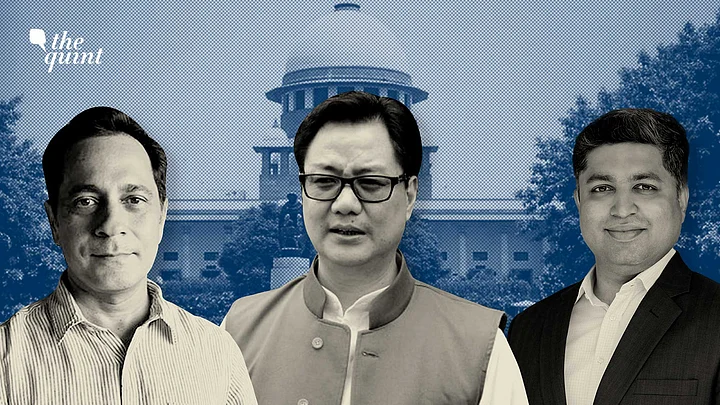Does the decades-old Collegium system have any relevance in modern-day judiciary? This has been the most asked question from several quarters after Union Law Minister Kiren Rijiju took on the Supreme Court's process of appointment of judges in India.
Weighing in on the issue, Saurabh Kirpal—a senior advocate whose name was recommended this year for elevation to the Delhi High court, narrows down on the hits and misses of the Collegium system.
Responding to what could have been a landmark decision of the Supreme Court in terms of LGBTQAI+ rights in India, Kirpal states how his sexuality was discerned to be a potential roadblock to his selection and how this dated procedure turns the clock back for those seeking representation in the judiciary.
When it comes to decision-making, judicial delay is a staple that has been plaguing our system for a very long time. This 'delay', if you ask me, is a pernicious kind of bacteria or termite eating into and destroying the system from within. Such as in cases of Sedition, the Executive has taken some action which it may not have otherwise. Especially in recent years, the cases shot up dramatically and one often lives with the fear of landing up in jail and not getting bail, on top of that which is not quite the case except for perhaps, a few headline ones.
Speaking of my instance particularly, I strongly believe that my sexuality has played a major role in the amount of time taken and in influencing the outcome by the Collegium. In any which case, any external factor that adds to the criteria, toppling merit, isn't ideal and needs prompt review and legal intervention.
How SC Collegium May Not Be Inclusive
I've always been extremely vocal about how I believe the Collegium system is wrong. Such a system doesn't merit a place in a democratic institution.
On the other hand, the National Judicial Appointments Commission (NJAC)—brought in by the Parliament through an amendment, and aimed at achieving greater transparency and accountability for judges' appointment, should have been given an opportunity to function. Instead, the Supreme Court struck it down.
Even though all decisions taken may not be categorically wrong, what is bothersome is the secrecy in which most of these can be found shrouded which is outright unconstitutional.
In such a scenario, one maybe delusional to think of the lack of political interference in the appointment of judges when there clearly is one, and a strong one at that.
This is compelling enough to rethink why the Collegium system is any good when it stands against transparency. This may also explain why my file took ages to move and the appointment got deferred, given that things have been perennially viewed from the prism of sexuality and other parameters unrelated to the criteria of judicial selection.
To read the counterview on Indian judiciary's Collegium system, click here.
(At The Quint, we question everything. Play an active role in shaping our journalism by becoming a member today.)
